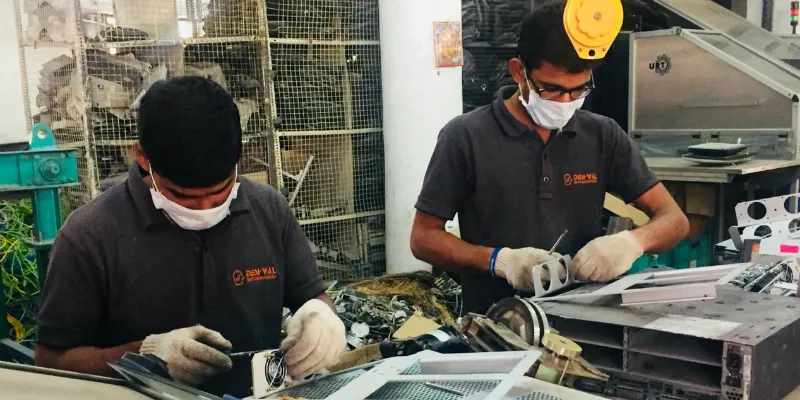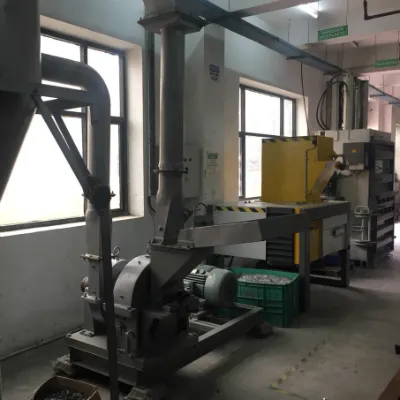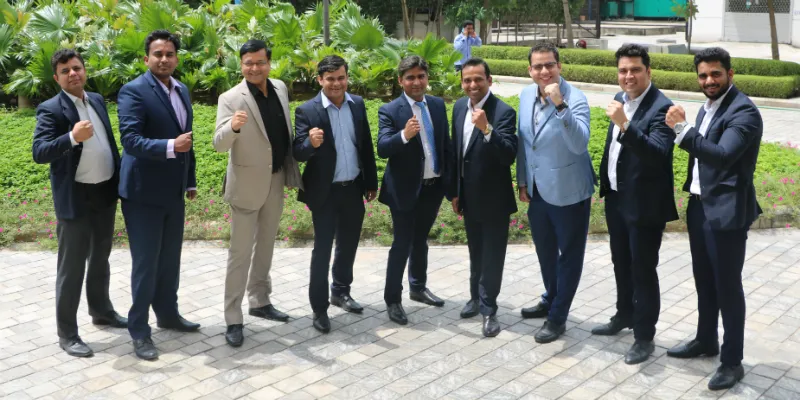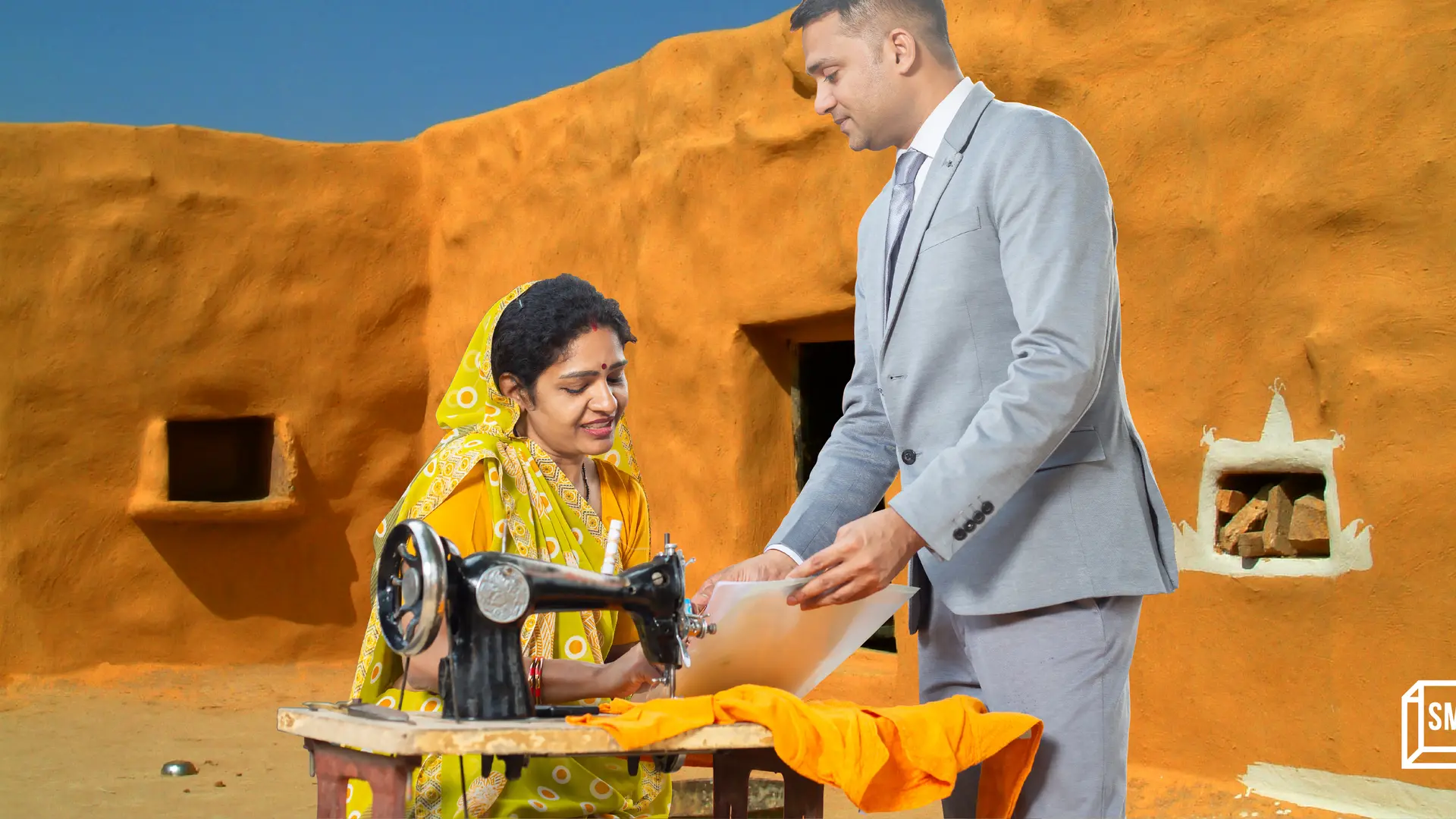Deshwal Waste Management makes cash out of trash, eyes 500 tonnes of e-waste per year
As electrical appliances and electronics become more accessible and affordable to Indians, e-waste continues to grow. E-waste also severely damages the environment and poses a risk to public health, especially to workers segregating the waste.
When budding entrepreneur Raj Kumar was working in the IT sector, he noticed e-waste becoming increasingly difficult to manage and recycle.
“India accounted for nearly three million metric tonnes of e-waste in 2018, and the nation has a recycling capacity of only five percent of this amount,” says Raj Kumar (38), Founder and CEO, Deshwal Waste Management.
“Looking at this, I decided to serve the society and contribute to global welfare and environment safety by establishing my first e-waste recycling plant in Khushkhera, Rajasthan under the name Deshwal e-waste recycler,” he says.
Motivated by the e-waste draft penned by the Centre in 2010, Kumar decided to invest his own money and formally launch Deshwal Waste Management in 2013. His first move was to establish another large-scale recycling facility in Manesar. The two facilities began recycling various kinds of e-waste, used batteries, plastics, and used oils.

Deshwal employees working with e-waste
So far, Kumar has invested Rs 15 crore into Deshwal, and is expecting a turnover of Rs 23 crore for 2018-19. Since its inception, Deshwal has recycled more than 1,000 metric tonnes of waste, and is targeting to recycle more than 500 tonnes per year after 2019. Kumar believes the efforts of his company in waste management, recycling, and spreading public awareness will contribute to the success of the ‘Swachh Bharat’ campaign.
In an interaction with SMBStory, Raj Kumar, Founder and CEO, Deshwal Waste Management, reveals more about his company and why handling e-waste can be a challenge.
Edited excerpts:
SMBStory: What are the biggest challenges of e-waste management?
Raj Kumar: A large number of children are involved in e-waste management in India. Hazardous materials like lead, cadmium, chromium, brominated flame retardants, polychlorinated biphenyls, and the toxic fumes generated from unsafe burning of the e-waste are continually deteriorating national health. Citizens will face severe consequences if e-waste is not controlled and managed efficiently, especially for people employed in the informal e-waste management sector.

Inside Deshwal's recycling facility
Another big challenge is to create awareness in the society and motivate people to handle e-waste responsibly. It is also difficult to ensure proper recycling and dismantling of e-waste under a safe and scientifically-sound environment.
SMBS: What are Deshwal’s focus areas?
RK: Deshwal has a dedicated research and development division with a team of scientists who are making breakthroughs in recycling technology in state-of-the-art laboratories. With this large-scale recycling facilities, we handle regular e-waste, heavy machinery dismantling, metal recovery, battery recycling, extended producer responsibility, and plastic recycling.
Further, we are also phasing into becoming a social organisation by involving ourselves in public awareness campaigns and organising e-waste training camps for corporates, societies and schools.
SMBS: How big has Deshwal grown in the past five years?
RK: In this short span of time, we have become one of the leading single point recyclers in India. Deshwal recycles e-waste, used batteries, plastic, oil, and other waste products from households and industries in an efficient and environment-friendly manner.
We have four large-scale recycling facilities in Manesar (Haryana) and Khushkhera (Alwar, Rajasthan) for recycling of waste products and extracting metals. With a corporate client base of over 200, including industry giants from the IT sector, heavy industries, automobiles, consumer goods, financial sector, consulting, pharmaceuticals, telecommunications, and more, we are growing at 50 percent per year.
SMBS: How are you using digital to handle e-waste?
RK: Digital plays a key role in community engagement. Residents and corporates are two key pillars who contribute the most in e-waste management. We use digital platforms primarily for consumer awareness and engagement, with the intent to bring about behavioural change in the society.
Further, we have been doing business on digital platforms right from our inception. We have an in-house digital platform which helps us right from lead generation and pickup to compliance. Invoices and e-way bills are also generated online, with minimal paperwork involved. In the coming years, we will be a completely paperless organisation.
SMBS: What were some key milestones in Deshwal’s five year journey?
RK: Crossing the 1,000 metric tonne goal for recycling e-waste has been one of our key milestones. We also successfully executed a national e-waste awareness campaign named ‘Swachh Sansar’, where we impacted over 20,000 people.
We were able to reach an in-house metal recovery rate of over 99 percent. We also established our recycling facilities in four locations. Deshwal then introduced its state-of-the-art R&D lab and a team of dedicated scientists.

Deshwal's team of leaders
SMBS: E-waste management is a huge industry. How is Deshwal different from the competition?
RK: Around three million metric tonnes of e-waste is generated in India every year, and our aim is to recycle at least three percent of it. Our key differentiators lie in our end-to-end recycling capabilities under one roof, our strong R&D team, and our work on metal recovery and focus on lithium ions.
We are also the first in our industry to venture into heavy machinery recycling. Here, we dismantle heavy machinery in the weight range of 4,500 to 6,000 kgs, which are usually used in capital goods sector. Our awareness workshops and campaigns also make us unique. Further, we work closely with municipal corporations and pollution control boards to spread the word quickly and effectively.
SMBS: What are your plans in the near future?
RK: In the next two years, we aim to increase the capacity of our recycling facility and subsequently process 1,00,000 tonnes of waste, which is approximately three percent of the e-waste generated in India. We are also working towards filing two patents on propriety recycling technology.
With the aim of social upliftment, environment protection, and nurturing talent, we are also targeting government funding to achieve greater outreach and waste management on a greater scale.







